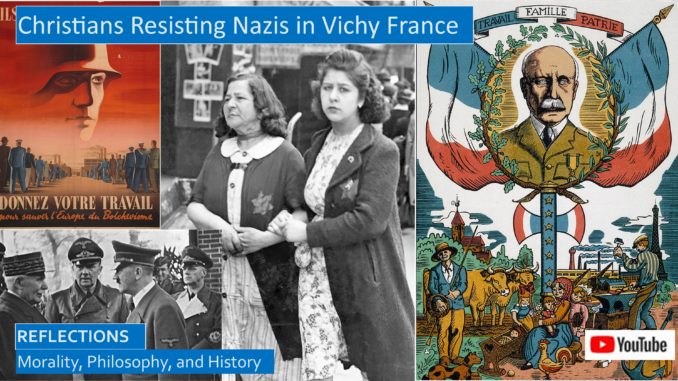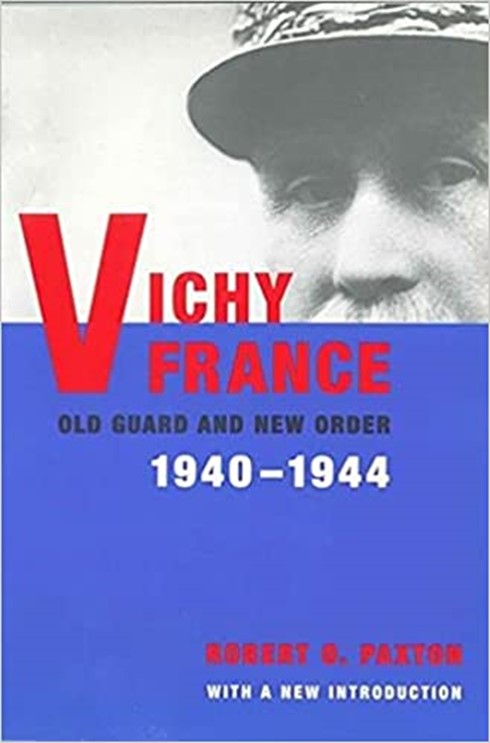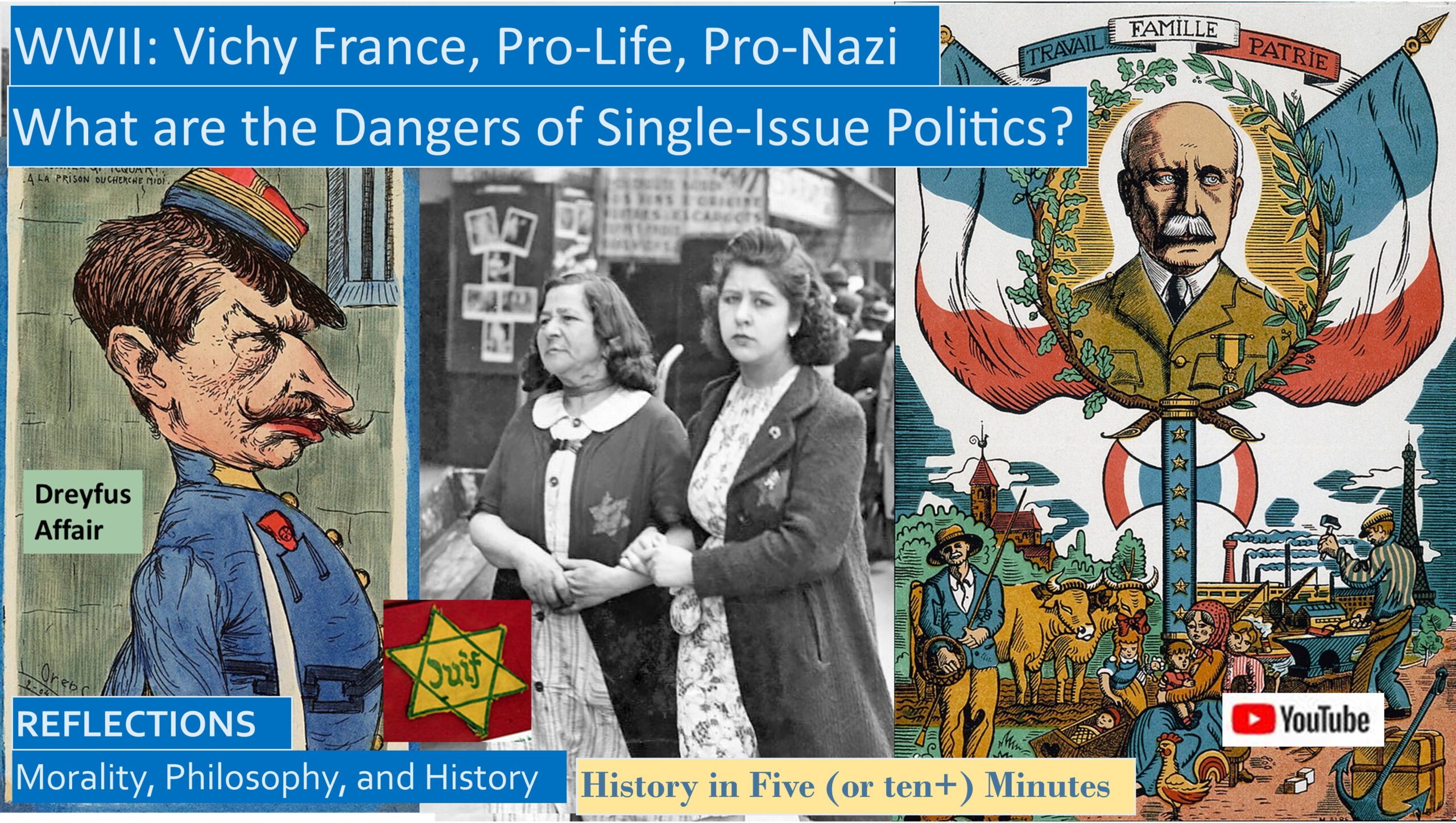
When the events of the war made eventual German defeat more and more likely, the Vichy regime became less and less powerful and more and more desperate. In the beginning collaboration was merely seen as making the best of a bad situation, over time collaboration was seen more and more to be treasonous.
Blog 1 of this series: http://www.seekingvirtueandwisdom.com/vichy-france-regime-blog-1-pro-life-pro-catholic-and-fascist/
Blog 2 of this series: http://www.seekingvirtueandwisdom.com/vichy-france-blog-2-collaborating-with-the-germans-in-the-early-years-1940-1942/
June 1941: German invades Russia in Operation Barbarossa. Initially Germany enjoyed the same quick and swift victory in Russia that she enjoyed in France, but Russia is so incredibly vast that no matter how successful the Nazis were on the battlefield, they would always be outnumbered by the Russians who remained.
Now that Russia was again an enemy of Germany, the Communists in France faced greater pressure, causing more Communists to join the Resistance which actively opposed the Germans and the Vichy French, and also greater cooperation between Catholics and Communists in France that would last into the post-war years.[1] Terrorism and assassinations of German officials increased, and the Vichy officials were drawn into the struggle against the Resistance, which was now a civil war.[2]
Now the Vichy officials heard a new excuse when they urged the Germans to see them as partners rather than as conquered, the Germans were now far too busy on the Eastern front to attend to matters in Europe, the French would have to wait until the end of the war to negotiate a permanent peace.
The German persecution of the Jews in France increased in 1942, Jews were required to wear yellow stars, and Himmler ordered that 100,000 Jews from all of France be deported to the Auschwitz death camps, foreign born Jews first. The Vichy officials offered token resistance.[3] This persecution extended to clergy who assisted the Jews, many French priests would be murdered in the Dachau concentration camp, many of the faithful would become martyrs in their defense of the Jews. One nun commented as she sent to the death camp in Ravensbruk, “I am leaving for Heaven.”[4]
December 1941: Japan attacks America at Pearl Harbor, and shortly thereafter Hitler declares war on America, which Churchill predicted would make eventual victory certain, as now America could enter the war in Europe directly.
November 1942: The Allies invade French North Africa in Operation Torch. There were multiple landings in French Morocco and Algeria, there was no preliminary bombardments, but the Vichy French troops offer resistance.
After Darlan had been deposed by Laval, Darlan was appointed commander of the armed forces. Luckily, he was visiting his son in the hospital in Algiers when the Resistance seized control of Algiers and also Darlan. When the Allies recognized Darlan as the commander of the French forces, he ordered the Vichy troops in North Africa to join the Allied forces, and they obeyed.
Darlan’s surrender of Vichy French troops made Hitler furious, he thought he could no longer trust the French. Hitler ordered German troops to seize control of the rump Vichy provinces, after that all France would be occupied.
Robert Paxton concludes, “The fact that Petain did not renounced the armistice in November 1942, upon the total occupation of France, and there is no contemporary evidence that this was ever considered, proved to the Germans (and to Hitler) that Petain would never resign.”[5]
This Darlan deal was highly controversial since Darlan had been a high-level collaborator with the Nazis. Churchill reminded the House of Commons, “I am sorry to have to mention a point like this, but it makes a lot of difference to a soldier whether a man fires his gun at him, or at an enemy.”[6] The Germans attempted to seize the French fleet in North Africa, the Vichy ordered that the French fleet be scuttled to keep it out of the hands of the Germans.
Germany finally put its economy on a war footing, French food rations were reduced to help feed Germany. Deportations of French Jews increased. The Nazis needed French workers for their factories since so many Poles and Russian laborers had been worked to death. Laval struck a pathetic deal with the Nazis, for every three skilled workers who volunteered to work in German factories, one French POW would be released. But when not enough French volunteered, this was turned into a draft of French workers to labor in German factories. Now many young French were offered a choice, join the Resistance or be drafted.[7]
The civil war deepened. The Vichy regime was drawn into greater collaboration with the Germans as the Vichy officials naively sought to restore French sovereignty by increasing French participation in the police and military. The infamous French Milice police force was established, considered by many to be more ruthless than the Gestapo. French police helped round up and deport the Jews to their deaths.[8] Professor Merriman points out that the Resistance was strongest in the south of France where there were mountains and forests where the resisters could hide.[9]
November 1942: in the Battle of Stalingrad the German General Paulus surrendered what was left of the Sixth Army, twenty-two divisions, when the Russians trapped them in Stalingrad. Millions died in Stalingrad. After Stalingrad the Germans were in full retreat on the Eastern front. Now the French would worry that eventually the German occupation would be replaced by a Russian occupation of France, which was a factor in the Vichy regime’s choice to continue their collaboration with the Nazis.
June 1944: The Allies invade through Normandy beaches in France on D-Day. Petain issued a proclamation urging all Frenchmen to remain neutral in the upcoming struggle, French blood was too precious to waste. When the Allies occupy Paris, the Germans compel Petain, Laval, and the Vichy government to the Sigmaringen enclave in Germany. Finally, Petain and Laval refused to participate in the charade of an obvious puppet government.[10]
Blog 4 of this series: http://www.seekingvirtueandwisdom.com/vichy-france-blog-4-christianity-in-vichy-france/
[1] WD Halls, “Politics, Society and Christianity in Vichy France”, (Oxford: Berg Publishers, 1995), pp. 209-210.
[2] “Vichy France, Old Guard and New Order, 1940-1944 (New York: Columbia University Press, 1972, 2011), pp. 221-227.
[3] Robert Paxton, Vichy France, pp. 181-185.
[4] WD Halls, Politics, Society and Christianity in Vichy France, pp. 216-217ff.
[5] Robert Paxton, Vichy France, p. 383.
[6] https://en.wikipedia.org/wiki/Fran%C3%A7ois_Darlan
[7] Robert Paxton, Vichy France, pp. 280-282, 292.
[8] Robert Paxton, Vichy France, pp. 294-301.
[9] https://www.youtube.com/watch?v=H5NNaMiXQ-4&index=19&list=PLMptTpi3a4bdqk56cdO-6q_siFAhESUWp
[10] Robert Paxton, Vichy France, pp. 326-329.






3 Trackbacks / Pingbacks